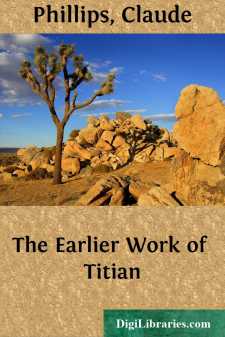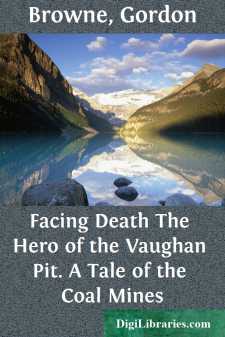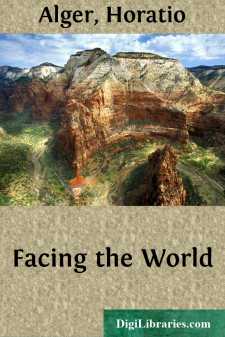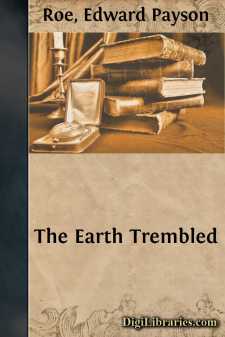Categories
- Antiques & Collectibles 13
- Architecture 36
- Art 48
- Bibles 22
- Biography & Autobiography 813
- Body, Mind & Spirit 142
- Business & Economics 28
- Children's Books 15
- Children's Fiction 12
- Computers 4
- Cooking 94
- Crafts & Hobbies 4
- Drama 346
- Education 46
- Family & Relationships 57
- Fiction 11828
- Games 19
- Gardening 17
- Health & Fitness 34
- History 1377
- House & Home 1
- Humor 147
- Juvenile Fiction 1873
- Juvenile Nonfiction 202
- Language Arts & Disciplines 88
- Law 16
- Literary Collections 686
- Literary Criticism 179
- Mathematics 13
- Medical 41
- Music 40
- Nature 179
- Non-Classifiable 1768
- Performing Arts 7
- Periodicals 1453
- Philosophy 64
- Photography 2
- Poetry 896
- Political Science 203
- Psychology 42
- Reference 154
- Religion 513
- Science 126
- Self-Help 84
- Social Science 81
- Sports & Recreation 34
- Study Aids 3
- Technology & Engineering 59
- Transportation 23
- Travel 463
- True Crime 29
Sort by:
by:
Claude Phillips
CHAPTER I Cadore and Venice—Early Giorgionesque works up to the date of the residence in Padua—New interpretations of Giorgione's and Titian's pictures. Tiziano Vecelli was born in or about the year 1477 at Pieve di Cadore, a district of the southern Tyrol then belonging to the Republic of Venice, and still within the Italian frontier. He was the son of Gregorio di Conte Vecelli by his...
more...
by:
John Louis Haney
INTRODUCTION To the modern reader, with an abundance of periodicals of all sorts and upon all subjects at hand, it seems hardly possible that this wealth of ephemeral literature was virtually developed within the past two centuries. It offers such a rational means for the dissemination of the latest scientific and literary news that the mind undeceived by facts would naturally place the origin of the...
more...
INTRODUCTION I The development of Tennyson's genius, methods, aims and capacity of achievement in poetry can be studied with singular precision and fulness in the history of the poems included in the present volume. In 1842 he published the two volumes which gave him, by almost general consent, the first place among the poets of his time, for, though Wordsworth was alive, Wordsworth's best...
more...
THE GREAT STONE BOOK "The crust of our earth is a great cemetery where the rocks are tombstones on which the buried dead have written their own epitaphs. They tell us who they were, and when and where they lived."—Louis Agassiz. Deep in the ground, and high and dry on the sides of mountains, belts of limestone and sandstone and slate lie on the ancient granite ribs of the earth. They are the...
more...
by:
Jules Verne
CHAPTER I. HEALTHFUL HOUSE. The carte de visite received that day, June 15, 189—, by the director of the establishment of Healthful House was a very neat one, and simply bore, without escutcheon or coronet, the name: COUNT D’ARTIGAS. Below this name, in a corner of the card, the following address was written in lead pencil: “On board the schooner Ebba, anchored off New-Berne, Pamlico Sound.”...
more...
by:
Gordon Browne
EVIL TIDINGS. row of brick-built houses with slate roofs, at the edge of a large mining village in Staffordshire. The houses are dingy and colourless, and without relief of any kind. So are those in the next row, so in the street beyond, and throughout the whole village. There is a dreary monotony about the place; and if some giant could come and pick up all the rows of houses, and change their...
more...
by:
George P. Marsh
CHAPTER 1. INTRODUCTORY. Natural Advantages of the Territory of the Roman Empire.—Physical Decayof that Territory.—Causes of the Decay.—Reaction of Man on Nature.—Observation of Nature.—Uncertainty of Our Historical Knowledge ofAncient Climates.—Uncertainty of Modern Meteorology.—Stability ofNature.—Formation of Bogs—Natural Conditions Favorable to...
more...
by:
Kris Neville
CHAPTER IWhat defense could she raise against mutant science—telepathy, invisibility, teleportation—especially since Earth was not aware of its danger!When Julia (she pronounced the name without the "a" at the end) was twenty-four, she inherited $22,000 from an obscure uncle in California. After deducting taxes and administrative expenses, the California State Court ordered the money...
more...
by:
Horatio Alger
"Here's a letter for you, Harry," said George Howard. "I was passing the hotel on my way home from school when Abner Potts called out to me from the piazza, and asked me to bring it." The speaker was a bright, round-faced boy of ten. The boy whom he addressed was five or six years older. Only a week previous he had lost his father, and as the family consisted only of these two, he...
more...
CHAPTER I MARY WALLINGFORD At the beginning of the Civil War there was a fine old residence on Meeting Street in Charleston, South Carolina, inhabited by a family almost as old as the State. Its inheritor and owner, Orville Burgoyne, was a widower. He had been much saddened in temperament since the death of the wife, and had withdrawn as far as possible from public affairs. His library and the past had...
more...











